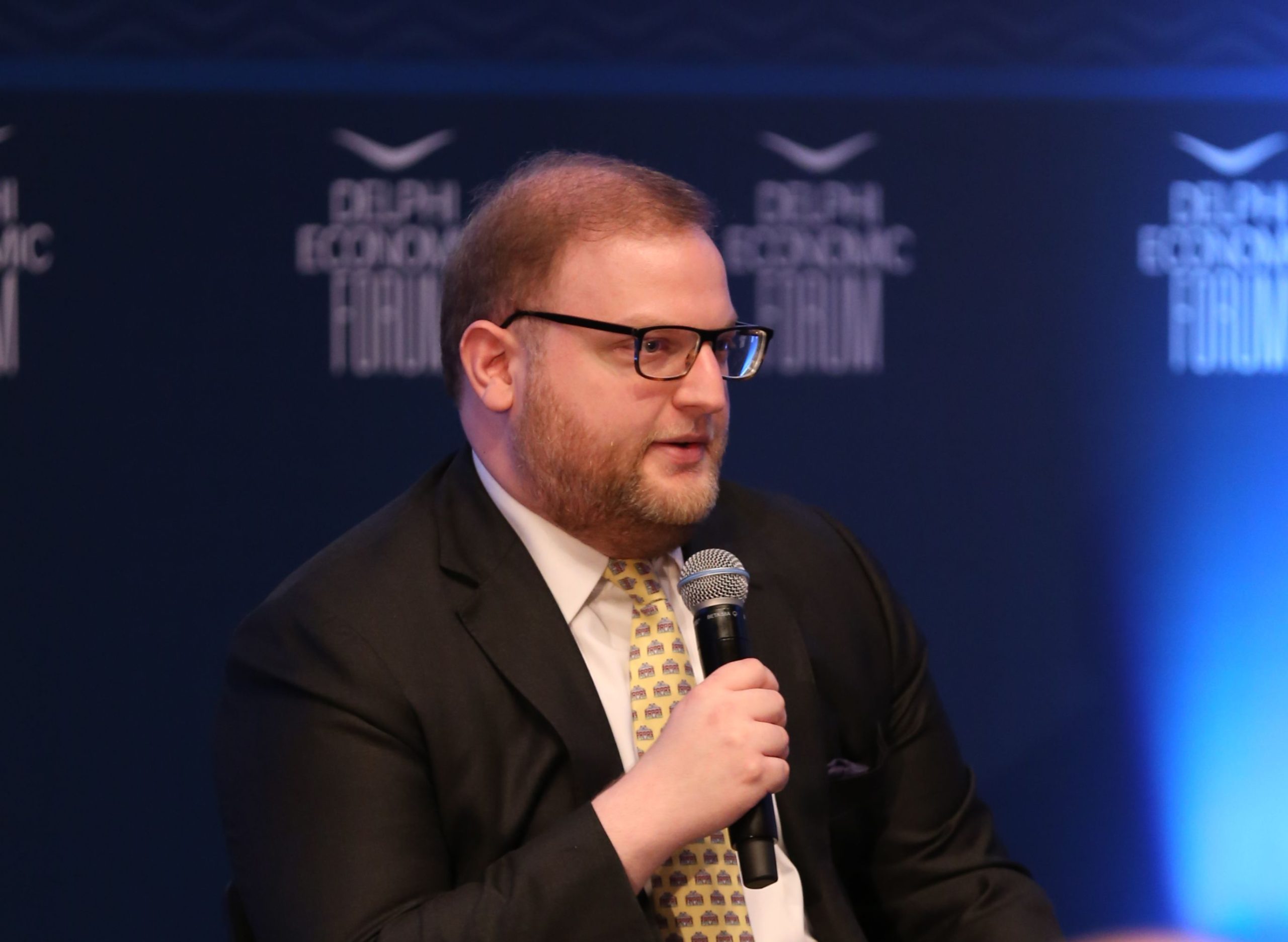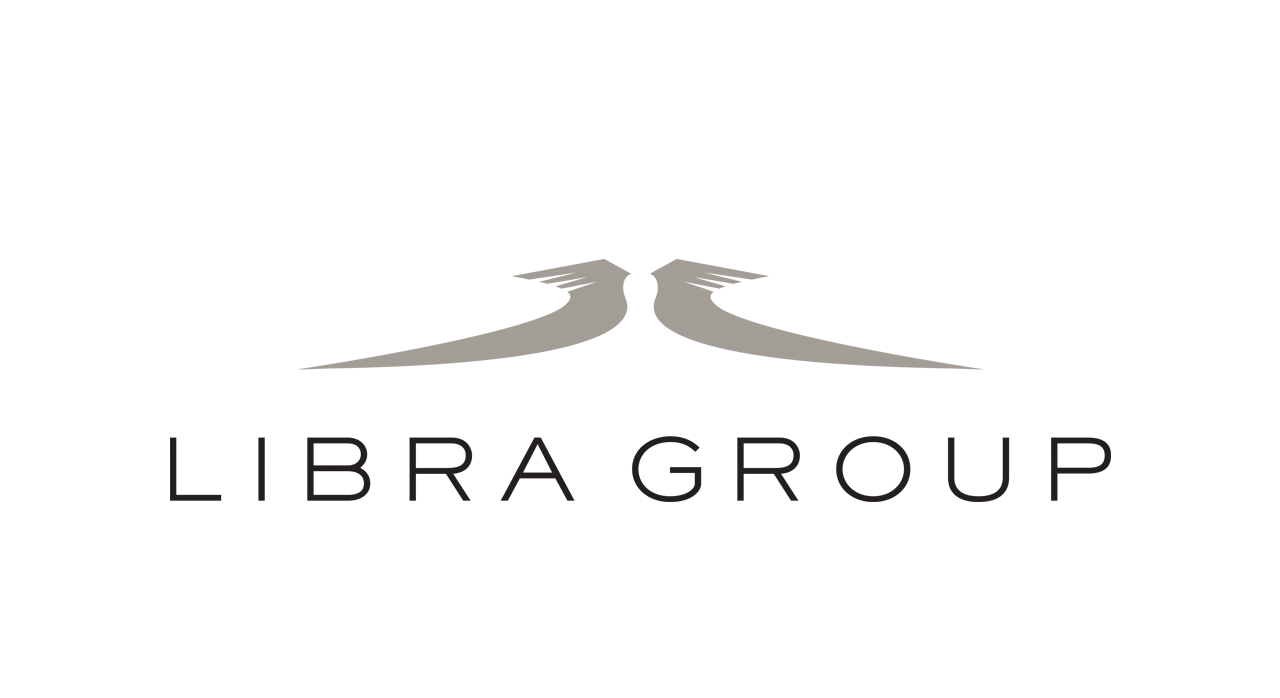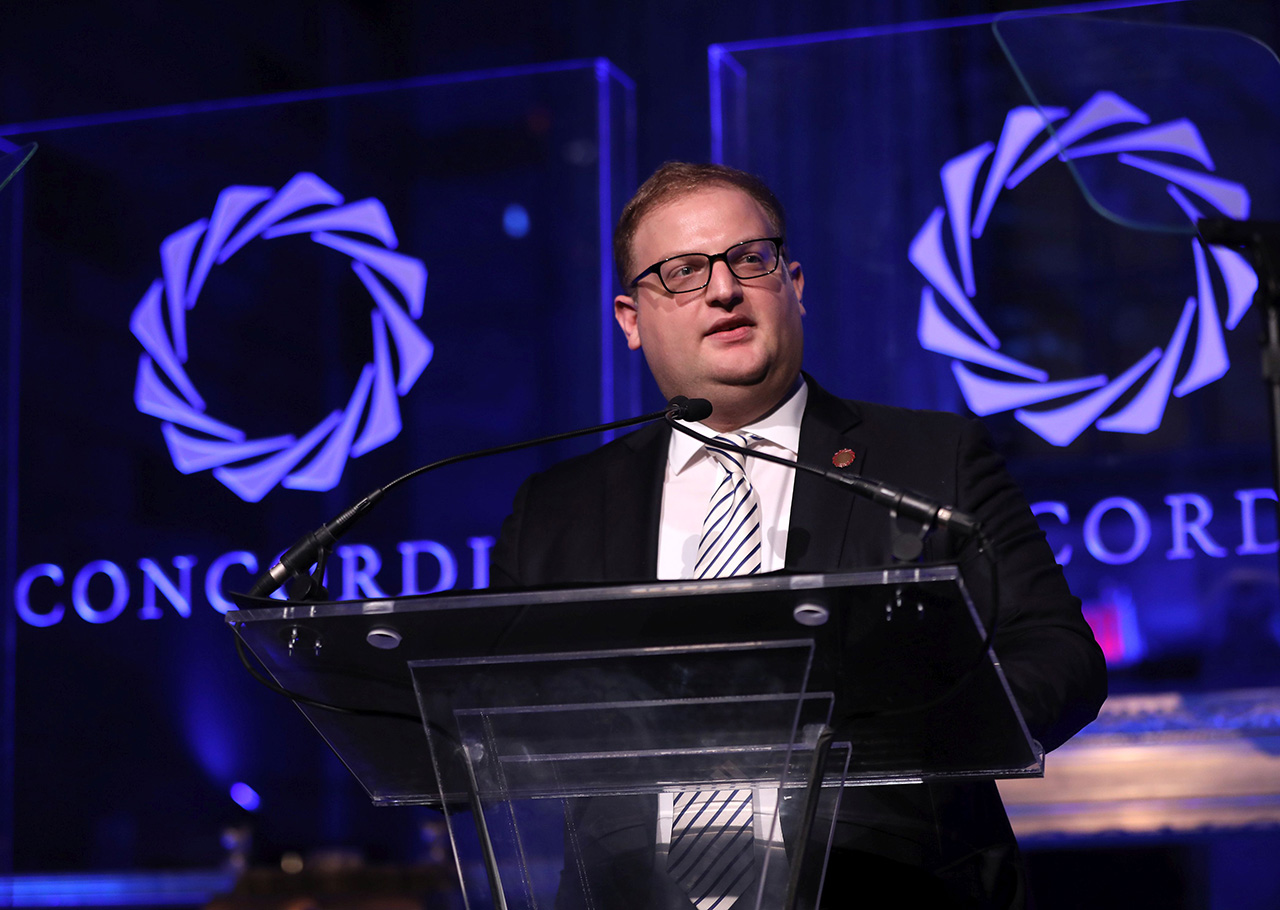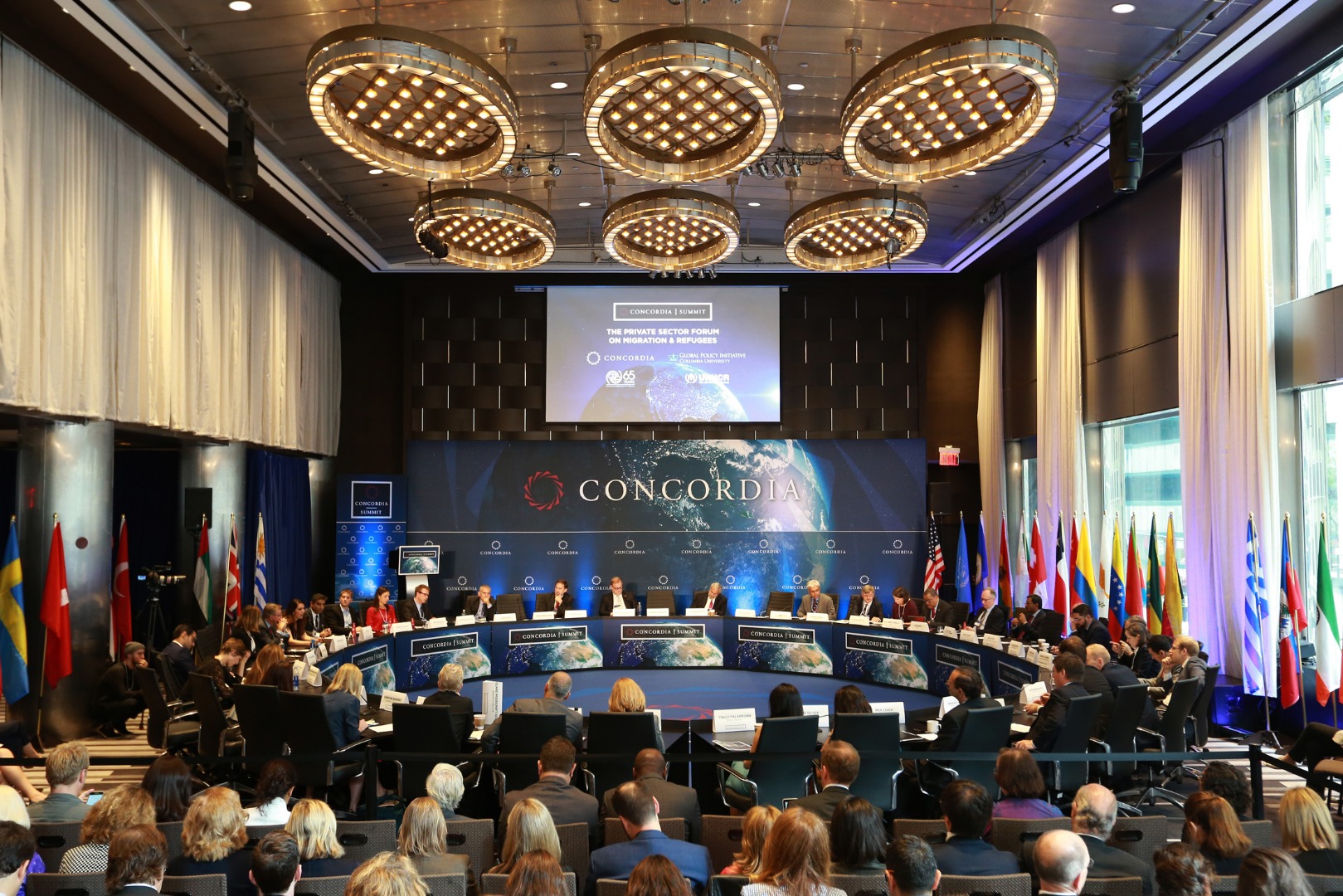INSIGHT: “Power shifts in a multipolar world” – by Nicholas Logothetis

Concordia co-founder and Chairman Nicholas Logothetis recently gave a speech to the Delphi Economic Forum in Greece on the challenges to today’s world where power shifts and paradigm changes bring us to a multipolar situation where openness, liberal values and the contribution of America are all of vital importance.
As we meet today, the world seems to be in disarray. The models and frameworks which have largely prevailed for the period since 1945 all now appear to be under threat.
For many years after World War 2, the United States of America was not only by far the largest economy in the world, but also, deliberately and proudly, the most committed globalist country – determined to use its influence to promote international integration, to push for ever greater cross-border trade in every part of the world, and to be an active enthusiast for global and regional initiatives to tackle disease, reduce poverty and, more recently, cope with climate change.
For much of the post-war era, the US was challenged by the Soviet Union in what seemed to be a bipolar world. In reality, however, the failings of the Soviet system meant that it was a very unequal contest – when the USSR collapsed in 1991 it soon became clear that its economic performance and military strength were often as mythical as its supposed ideological appeal.
We briefly entered a time when it was thought that we had a unipolar planet. The US in the last decade of the twentieth century, and the first decade of this one, seemed beyond challenge. Serene in its unmatched technological supremacy, its ideas and ideals of democracy and capitalism appeared to be near universal in their appeal.
So a shift to a multipolar world seemed, to some, both inevitable and desirable. A stronger and more integrated Europe could help share the burden of promoting liberal values. A wealthier China, and a rising India, would spread prosperity to new corners of the world while providing growing markets for the benefit of all. Russia would be different from its neighbours, but could work peaceably with them. America would still lead, but the burden would be shared and others would start to have their chance to step forward and step up.
Much of that now seems in question.
Today, the USA, at least reading the initial signals, no longer seems to want to lead efforts for more trade, more democracy, and stronger collective security.
Russia appears far happier to do things on its own than to seek to lead the international community as a whole. Meanwhile, economic power is visibly draining away from the old NATO and OECD blocs towards Asia, whose governments still face so many pressing issues within their own countries, and regions for whom a global leadership role is not, at least not yet, a practical or immediate focus.
Far from moving towards a genuinely multipolar world, then, where several countries or blocs compete or co-operate to lead, we seem to be closer now to a world with no pole at all. As my friend Ian Bremmer calls it a “G-Zero” world. Right now, if America steps back, it will create a vacuum, and from there it is unclear what will happen.
All this might amount to what Thomas Kuhn called “a paradigm shift” – a profound change in the underlying framework of assumptions which have guided countries, businesses and individuals.
It all seems a long way from the heady days of a quarter of a century ago, when American leadership ensured that the Berlin Wall was torn down, that Eastern Europe would be set free, and that open markets would be embraced from Beijing to Bulgaria.
Francis Fukuyama famously wrote then of “the end of history” because only liberal democracy would survive. History has bitten back, and now even the US seems to question the virtues of open borders and markets, of internationalism and global communities, of putting the world first and your own interests second.
In recent weeks I have met people across different countries and continents who share a sense of deep bewilderment about how this has happened and what it might mean.
In Colombia, where my organization [Concordia] hosted a summit last week that was attended by the sitting President of the country, enthusiasm for the peace process is clouded by uncertainty on whether the US will continue to step forward to help pay for a better future. Here in Greece, an absence of American leadership to promote global financial stability is a major concern. In Mexico, people are still stunned and uncomprehending about what is happening in their northern neighbour, and what this may mean for their family and working lives alike.
If this sounds at first like a criticism of the US, let me be clear. I am, and always will be, an unambiguous fan of America. It is without doubt a force for good in the world, and over the last hundred years has been the single greatest positive force acting upon human destiny.
So I am very far from being someone who wishes America ill, still less one who rubs his hands at evidence that it may want to step back from its position of global predominance, quite the opposite in fact.
When the US is strong and engaged, it has spread peace, prosperity, and freedom. It has helped clean our shared environment, increase the liberties and life chances of disadvantaged groups in every kind of society, and has led our species to new pinnacles of technological achievement both here on Earth and out in space.
The world benefits when America leads. But so do Americans.
The US enthusiasm for free trade has made it possible for American consumers to enjoy the highest living standards in the world. When a WalMart customer in Michigan buys an orange, or a resident of Florida gets a large screen TV for their home, they benefit from a truly global supply chain which works across countries and continents – and which is good news for everyone involved.
When America built and defended NATO, created alliances in Asia, and reached out to form partnerships with its neighbours in Canada and Mexico, it safeguarded its own families and homes just as much as those of its allies and friends.
In the long-run, my view shall ever be: “don’t bet against America”. It is a country with a people who always come through, and always grow stronger in time.
But what about the short-term? What can those of us who believe in openness and liberal values do right now?
The most immediate task, I suggest, is to make the messages for our viewpoint as clear, direct, and engaging as those on the other side.
Making your words simple does not mean being simplistic. It means communicating well.
The greatest clarion call for freedom in history came in Philadelphia in 1776.
“We, the people” declared straightforwardly that “we hold these truths to be self-evident”.
Let us today hold some other truths to be self-evident.
• Open hearts are always better than closed minds.
• Free markets are the essential underpinning not only for prosperity, but for every other kind of freedom too.
• And we are at our best when we work together to tear down the walls which divide us, not when we look for reasons to put them up.
Our world needs that kind of America – an America proud of its ideals, and proud to lead the world in pursuit of them – to be born again.
Our task should be to help make that day come soon.

 INSIGHT: “Trump’s extreme vetting for refugees? Already here” – by Nicholas Logothetis and Stephen Yale-Loehr
INSIGHT: “Trump’s extreme vetting for refugees? Already here” – by Nicholas Logothetis and Stephen Yale-Loehr  Concordia chooses Athens for first European summit
Concordia chooses Athens for first European summit